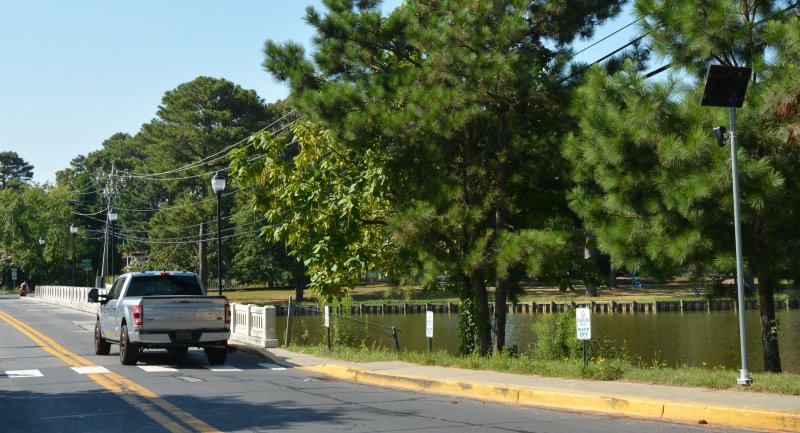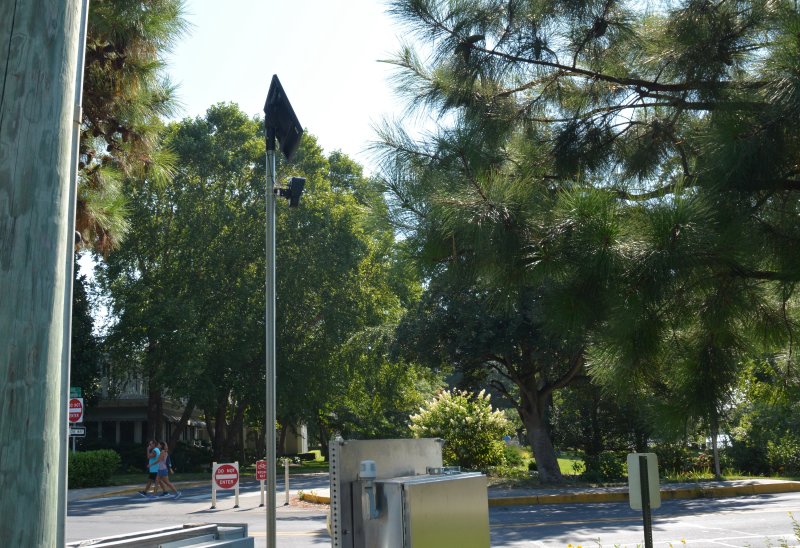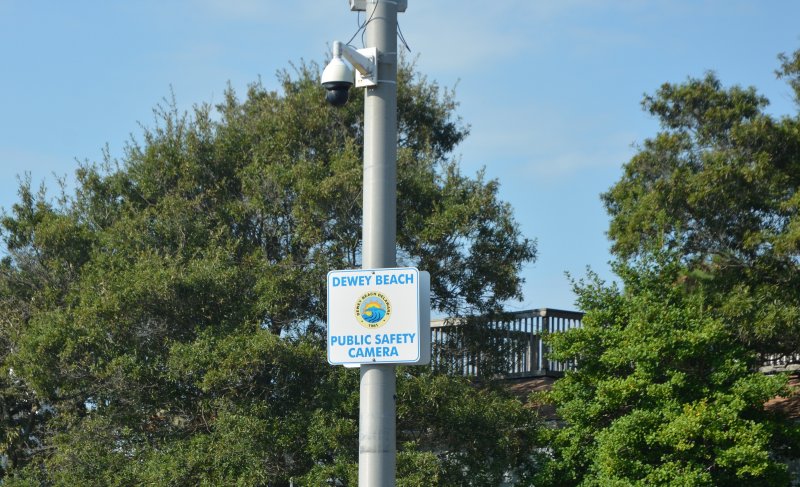Rehoboth issues report on use of AI-powered cameras
Earlier this year, a few weeks before Memorial Day, Rehoboth Beach implemented the use of license plate readers powered by artificial intelligence to identify vehicles based on make, model, color and other details. Now, following the continued persistence of an area resident with decades of cybersecurity experience, the city has implemented a transparency report that provides the public with more information on what kind of data the city is collecting.
The Cape Gazette first reported Rehoboth was using Flock Safety, AI-powered license plate reading technology, at the end of May after noticing the installation of the cameras, which are inconspicuous and not clearly marked, at the city’s entrances.
Almost immediately, Lewes resident Phil Hagen raised concerns about how the city was going to be using the data it collected.
“The ethics of using this technology in general is subject to debate and I believe there are certainly reasonable implementations, configurations, and uses for the service and its functionality,” said Hagen, in an open email to city officials. “However, the unfettered access to such data from a town that relies on tourism for most of its economic success represents a significant risk to its residents and visitors alike.”
Hagen has continued to exchange emails with city officials.
In a mid-July response, City Manager Taylour Tedder said he’s utilized several transparency portals for other information in past cities and enjoyed providing the highest level of public information possible.
“I will personally look into it and see what we can do,” said Tedder in a July 17 email to Hagen. “It’s appealing to me – but the city needs to research the cost.”
A short time later, after researching the subject on his own, Hagen reported to the city that the transparency report is a free and optional feature that can be enabled by any of Flock’s law enforcement customers.
“Given that by all accounts this is a free feature for all of Flock’s law enforcement clients, the widely observed and demonstrated potential for abuse of the service, I would hope there is no reason to oppose enabling the feature,” said Hagen in an Aug. 12 email to city officials. “I am sure the public would welcome clarity regarding the privacy configuration of RBPD’s implementation.”
Hagen’s persistence has paid off.
When contacted on why the city hasn’t enabled the transparency report option, Erin Corcoran, city communication assistant, said the police department is in the process of obtaining a report from Flock and is waiting to hear back. Once the report is created and sent, it will be available on the city’s website for the public to view, she said in an email Aug. 20.
The online web portal to the report went live shortly after and was last updated Sunday, Aug. 24. The portal provides details on what’s being detected – license plates, vehicles – and what’s not being detected – facial recognition, people, gender, race. The portal says all data is owned by the Rehoboth Beach Police Department and is never sold or shared with third parties. Immigration enforcement, traffic enforcement, and usage based on a protected class are among the prohibited uses listed for the data. The portal says the data is connected to alerts from the National Crime Information Center and Amber Alerts.
Data is retained for 30 days. There have been 215,611 unique vehicles detected in the last 30 days, which produced 126 hits from the alert systems the city is connected to.
Mayor Stan Mills supported the additional transparency.
“City officials and I, along with our employees, strongly support transparency,” said Mills. “We stand behind our police chief’s decision to utilize the transparency portal, which reinforces the department’s ongoing commitment to both public safety and the protection of civil liberties.”
Even with a report apparently forthcoming, the cameras remain unidentified, and it doesn’t appear that will be changed anytime soon.
The police department declines to comment on the choice to not put signage on the poles with cameras, said Corcoran.
Chris Flood has been working for the Cape Gazette since early 2014. He currently covers Rehoboth Beach and Henlopen Acres, but has also covered Dewey Beach and the state government. He covers environmental stories, business stories and random stories on subjects he finds interesting, and he also writes a column called Choppin’ Wood that runs every other week. He’s a graduate of the University of Maine and the Landing School of Boat Building & Design.
























































